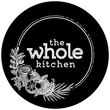Why Dietary Fiber Matters In Our Diet

What is dietary fibre?
The term dietary fibre refers to carbohydrates mostly found in the structural parts of plant foods that our body is unable to digest. As compared to carbohydrates such as sugars and starches, the human body does not have the enzymes needed to break the bonds in fibre. Most fibres pass through most of the digestive tract unchanged and out of the body. Our colon has intestinal bacteria that can break down some fibres through fermentation.
There are two types of fibre:
- Soluble fibre: This type of fibre can dissolve in water and form a gel-like substance. Some examples are psyllium husk, pectin in fruits, and gums.
- Insoluble fibre: This type of fibre does not dissolve in water and is less digestible. Some examples are the stems and leaves of vegetables, nuts, seeds, and grains.
What are the health benefits of dietary fibre?
Even though fibres are not digested and absorbed in the body, they still bring value to our diet.
- Aids digestion
Sluggish bowel movements or constipation can be a sign of lack of fibre in the diet. Fibre helps add bulk to stool and softens it. This makes it easier for stool to pass through the intestinal tract and prevents straining. Insoluble fibre promotes movement and decreases the transit time of food waste in the intestinal tract. Any potentially harmful substances present in food waste will have less time to come in contact with the intestinal wall.
- Lowers cholesterol levels
Soluble fibres can help to lower total cholesterol levels by lowering the LDL or “bad” cholesterol. Bile acids produced in the liver are made from cholesterol. What fibre does is bind to these bile acids, so they pass through the intestinal tract as waste. Hence, the body absorbs less dietary cholesterol.
- Better blood sugar control
Fibre helps to slow down the release of sugar into the bloodstream. Instead of a sugar spike, consuming enough fibre gives a gradual release of sugar so that energy levels are sustained. This also helps people with type 2 diabetes improve their blood sugar levels.
4. Keeps you satisfied longer
Fibre rich food helps you to feel full longer. Fiber tends to stay longer in the stomach than other foods, helping you eat less during the day.
How much fibre do we need?
There are slightly varying guidelines depending on the country.
The Singapore Health Promotion Board recommends a daily dietary fibre intake of 26g for men and 20g for women.
What are some high fibre foods?
These are the fibre content of some foods to include in your daily diet.
Fruits and vegetables, per 100g

- Avocado: 6.7g
- Green peas: 5.8g
- Kale: 5.8g
- Broccoli: 3.4g
- Pear: 3.1g
- Carrot: 2.8g
- Butternut squash: 2.6g
- Banana: 2.6g
- Apple: 2.4g
Legumes, per 100g
- Black beans: 8.7g
- Lentils: 8g
- Chickpeas: 7.6g
Gluten free grains, per 100g

- Amaranth, uncooked: 11.4g
- Rolled oats: 10.1g
- Buckwheat, uncooked: 10g
- Quinoa, uncooked: 7g
- Sorghum, uncooked: 6.7g
Nuts and seeds, per 30g
- Almonds: 3.5g
- Pistachios: 3.2g
- Macadamias: 2.8g
- Chia seeds: 10.4g
- Flaxseed: 8g
Meeting your fibre intake with The Whole Kitchen

Our new Superfood Muesli Range made from all natural ingredients, high in fibre and no added sugar! Great way to start your day with a delicious and satisfying breakfast packed with all the nutrients your body needs. Enjoy them as a muesli, overnight oats, bircher or porridge.
Our Mulberry Chia Superfood Muesli is a nutritionally rich blend of gluten free certified oats and organic coconut chips, sweetened only with organic mullberies, raisins, and nutritious seeds including black chia and golden flaxseed.
Our Cranberry Cacao Superfood Muesli is a delicious blend of gluten free certified oats, coated in raw organic cacao, sweetened with cranberries, raisins with a hint of warm cinnamon for added richness and chocolate flavour.
Our Quinoa Goji Muesli is a light crunchy blend of fibre-rich quinoa and brown rice puffs, high protein quinoa and amaranth flakes, lightly sweetened with colourful goji berries and raisins, mixed with nutritious pumpkin and sunflower seeds.
Try them and tell us what you think in the comments section.
https://thewholekitchen.com.sg/collections/muesli
Sources:
HealthXchange SG: https://www.healthxchange.sg/food-nutrition/food-tips/dietary-fibre-health-benefits-sources-fibre
Healthline: https://www.healthline.com/nutrition/22-high-fiber-foods

